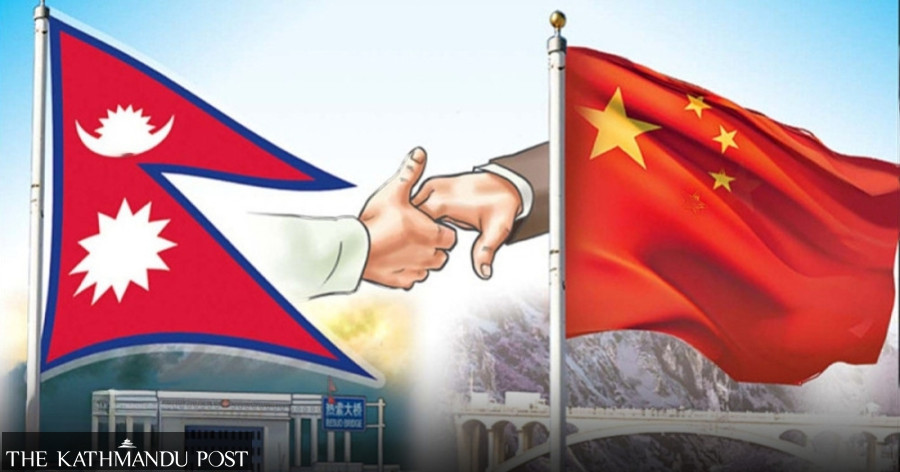Columns
Seeking certainty amidst uncertainties
Fortunately, political fluctuations in Nepal have not directly affected Nepal-China relations.
Gao Liang
The Gen Z movement that swept through Nepal has shaken the country like never before, igniting an intense yearning for change in the society while alarming the region for its volatility. The resultant sudden change of government is ushering in a new phase of political development. The violence and chaos from these events, resulting in significant loss of life and property damage, have yet to fully heal. However, the discrediting of the old political guard, the seeming dysfunctionality of national institutions and the demoralising of the public officials and police have huge stakes in the transition, which doesn’t limit it to a concern of domestic affairs.
Nepal’s geopolitical location amid a growing global and regional tug-of-war is a living reality that has long acted as an opportunity cost. China, as a friendly neighbour, has consistently respected Nepal’s autonomous choices in governance and administration. However, like any other nation, it cannot remain mum in situations that threaten its core national interests. Beijing has appreciated Nepal’s support in safeguarding those ‘red lines,’ and the continuous reaffirmation of that support has only strengthened the relationship over time. For neighbours with long-standing shared ambitions, deepening economic cooperation and ever-expanding people-to-people ties, this new transition should serve just to build greater confidence and provide firmer ground for mutual progress.
Stability and governance
The Gen Z movement's ability to rapidly resonate stems from the public's shared outrage over corruption and governance failures. The old power structures have been largely shaken, and the form and configuration of the new power structures still face immense uncertainty. Whether it is the internal jockeying among various parties or the subtle undercurrents of external geopolitical forces, all are propelling the situation forward, yet the direction remains unclear. With her top judge background and widely praised for her integrity, Prime Minister Karki may be able to gradually rebuild social trust and unity by fulfilling the commitments made upon taking office, ultimately achieving political stability. This is something China welcomes, as it aligns seamlessly with China's long-standing advocacy for the principle that "countries should independently choose their own paths of development."
For the long term, Beijing perhaps hopes to see Kathmandu gradually resolve its domestic divisions. From China's development experience, achieving the dual goals of reform and stability is the ultimate test of political wisdom. For years, calls to improve Nepal's domestic governance have been incessant, but opinions diverge widely on the paths and priorities for improvement. In any country or society, reform inevitably touches vested interests, and disturbing those interests invites opposition. Therefore, avoiding drastic changes that could lead to further political turmoil during this transitional period seems like an impossible mission. This requires broad consensus among all strata and groups in society on issues concerning the nation's core interests, along with mutual concessions and compromises to achieve it. The process of building such a consensus essentially tests the strategic resolve and inclusive vision of Nepal's political elites, because any hasty reorganisation of power could exacerbate factional rifts, in turn weakening the nation's resilience against external uncertainties. National unity should be Nepal's single agenda to avoid any possible external play. Gradual reform is not passive risk aversion but an active effort to forge a dynamic balance, transforming the momentum of change into the endogenous driving force of governance.
Economy and mutual trust
The direct harm this incident has inflicted on Nepal's economic development is plain to see. Although the transitional government is primarily tasked with political roles, this period is equally crucial for Nepal's economic recovery. Clearly, the success of Nepal's future political transformation cannot be separated from the support of economic resurgence, and China is an inevitable choice in this regard. Before the incident, momentum in China-Nepal economic development cooperation was particularly strong; under the Belt and Road Initiative (BRI) framework, Beijing naturally expects the transitional government to sustain this momentum and deepen collaboration in areas of interconnectivity. This would be a beneficial choice for any political force that assumes power in Nepal in the future. Through moderate aid, investment and cooperation, China can continue playing a constructive role as a partner in Nepal's economic and social development.
Currently, the Korala Pass in the Mustang region has become a key alternative route for bilateral land cargo transport following the blockage of the Rasuwagadhi and Tatopani passes due to natural disasters. Nepal's peak tourism season is about to begin, and tourists from China could add more confidence to the recovery of the tourism industry. However, these measures fall far short of the expectations placed on the population scales and future development potential of the two countries, as well as their aspirations for economic relations and interconnectivity. Moreover, the previous government had reached a preliminary consensus with China on advancing the BRI, with initial progress in related cooperation, including railways and cross-border energy projects. Beijing has consistently maintained that political changes will not interrupt these "mutually beneficial and win-win" efforts.
Balance and perseverance
In the intricate chessboard of South Asia, Nepal's role is becoming increasingly prominent and important; its unique geopolitical position dictates that it must seek a path of balance among major powers, no matter what. From any perspective, adhering to the established track that has been repeatedly proven effective and beneficial is undoubtedly the optimal solution for Nepal's diplomatic strategy. From a broader vista, such a diplomatic posture is not only a wise choice for Nepal but also aligns with the overall stability needs of the region.
Regarding China-Nepal relations, it is fortunate that this round of political fluctuations in Nepal has not directly affected the friendly ties between the two countries; the foundations and prospects of cooperation remain unaffected, and the overall development trajectory has not changed. The essence of China-Nepal relations is complementary and non-confrontational. China has no interest in labelling political figures or parties as pro- or anti- any country, as this does not help resolve practical issues and is not China's diplomatic style.
The uncertainties Nepal currently faces to some extent add uncertainty to the future of China-Nepal relations, but amid the tangled contradictions, a certain degree of certainty can also be discerned: Ensuring that bilateral relations and cooperation proceed steadily along the established track, and preventing political turbulence from spilling over into the bilateral realm. Crises can also turn into opportunities; if the transitional government can solidify domestic foundations through gradual governance, sustain economic mutual trust through pragmatic execution, and safeguard strategic space through balanced diplomacy, then post-2026 election Nepal could become a new pillar of stability in South Asia.




 16.12°C Kathmandu
16.12°C Kathmandu















